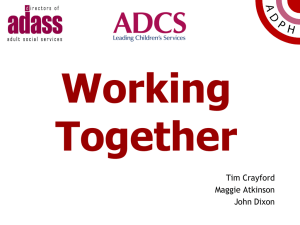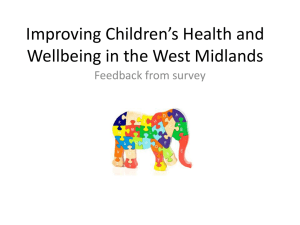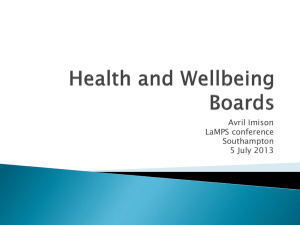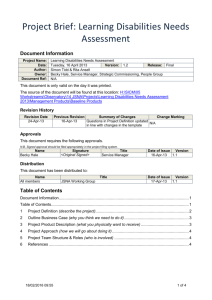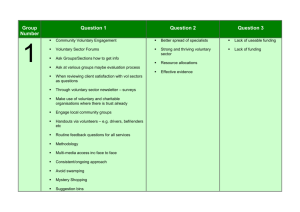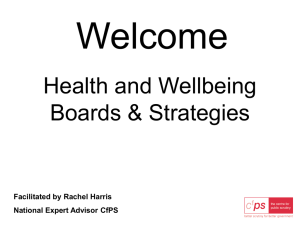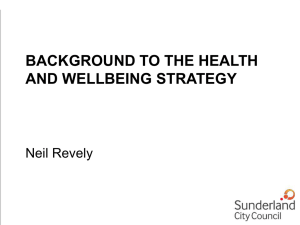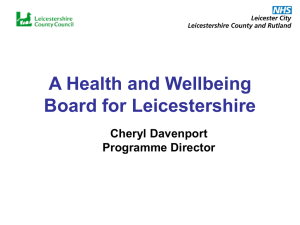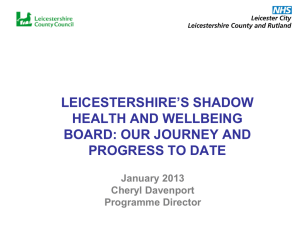Sample Slides on Wellbeing and Social
advertisement
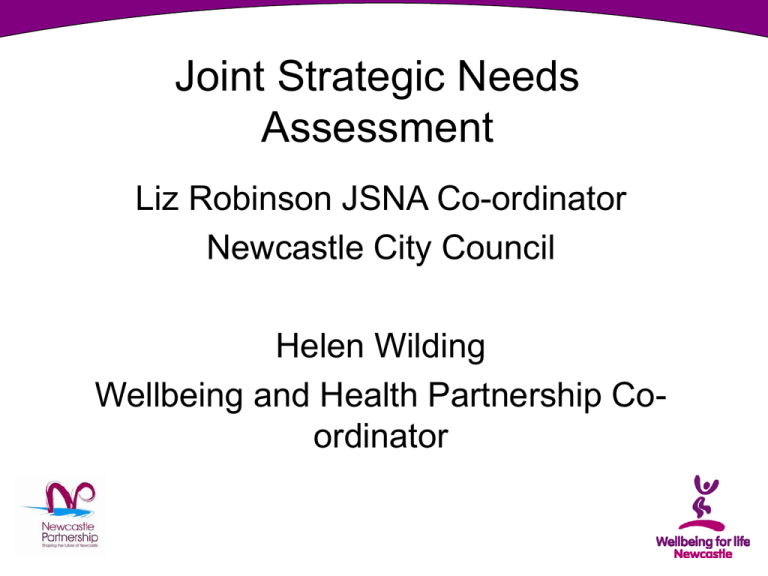
Joint Strategic Needs Assessment Liz Robinson JSNA Co-ordinator Newcastle City Council Helen Wilding Wellbeing and Health Partnership Coordinator What is a Joint Strategic Needs Assessment? • A JSNA should be the shared process to inform health and social care commissioning plans. • The responsibility is jointly placed on Directors of Adult Services, Children's Services and Pubic Health • It should be a Joint process involving the local authority and NHS Commissioning rather than these organisations carrying out needs assessment’s separately. • It should be Strategic by looking at population level health and wellbeing with particular focus on groups experiencing the poorest health and wellbeing outcomes. • It should anticipate future demand for services 3 – 5 years ahead. The Joint Strategic Needs Assessment •Demographic data •Research •Historical performance and trends •Service activity •Legislation and Government policy •Partner and Community views •Available resources Understanding need together •Shared priorities Developing priorities together Future role for JSNA • The City Council and GP Commissioning Consortia will have an equal and explicit duty to undertake the JSNA through the new Health and Wellbeing Board • The Council and GP Commissioning Consortia must have regard to JSNA in exercising relevant commissioning functions. • The Health and Wellbeing Board must produce a Joint Health and Wellbeing Strategy based on the JSNA. Newcastle’s Approach • The JSNA Project Board steers the process chaired by the Executive Director of Adult Services and Culture Services. • It includes the NHS, the Council and NCVS. • The development of the content of the JSNA is overseen by the Wellbeing and Health Partnership and Children's Trust’s arrangements. Newcastle’s Approach • A sectional approach with each section led by a topic lead e.g. ‘Adults with learning disabilities section’. • A governance group (where possible) who owns the section. e.g. the Learning Disabilities Partnership Board • A principle that the governance group need to be inclusive in their approach and this will vary depending on the section. What people have said they like • That the result of this work is available as a website www.newcastlejsna.org.uk • Partners appear to like the sectional approach. • Has been used by the voluntary sector, practice based commissioning groups as well as NHS and local authority commissioning. Where it needs to improve • People not involved in the governance arrangements are not sure how to be involved and contribute. • Needs to look more at the wider social determinants of health • Needs to be better at gathering knowledge of providers and local experience in a systematic way • Needs to develop more to inform NHS commissioning Any questions? Over to you?
